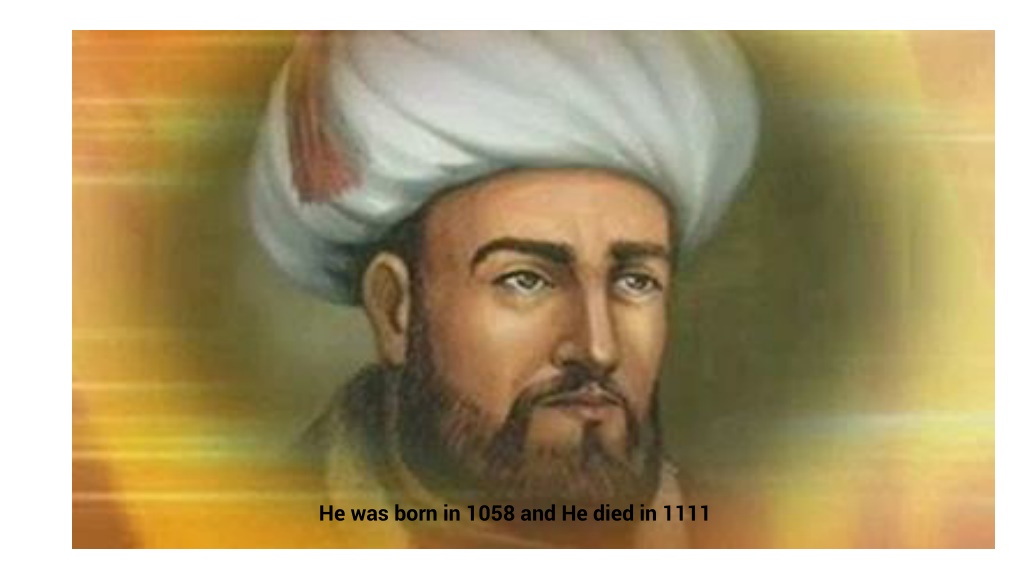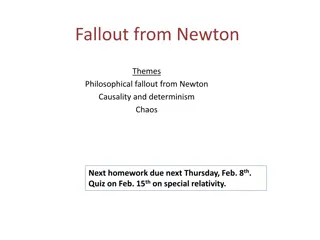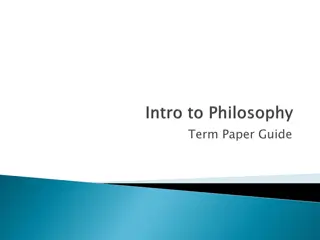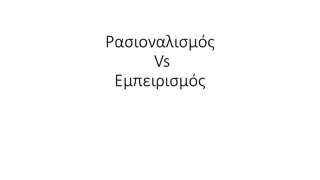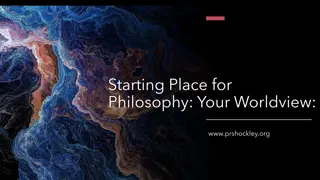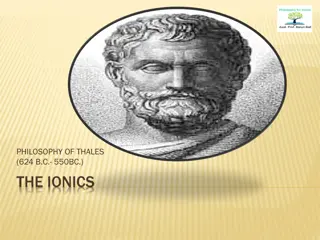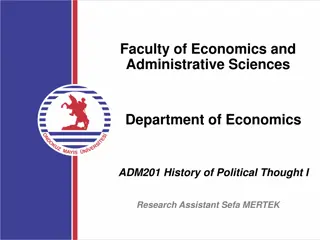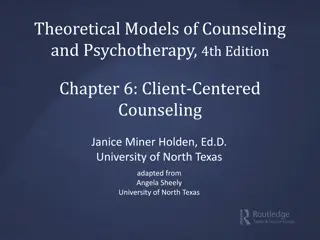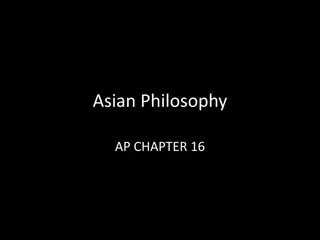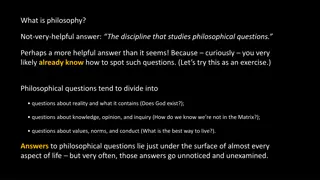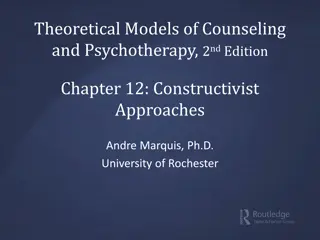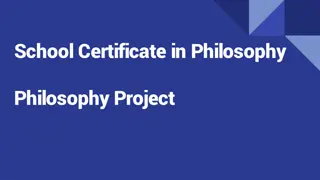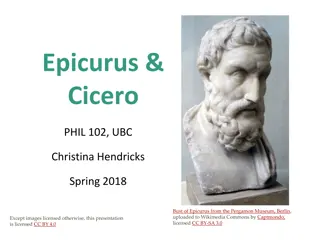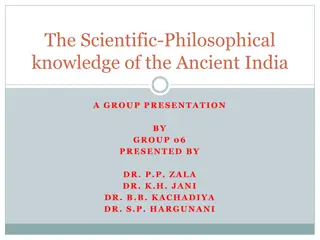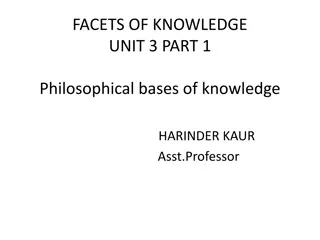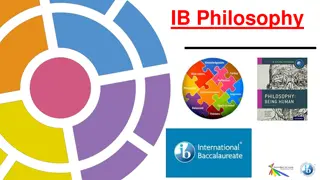Understanding Al-Ghazali's Worldview and Philosophical Contributions
Al-Ghazali, born in 1058 and died in 1111, was a prominent figure in Islamic philosophy. His worldview divided the universe into the transient world and the eternal hereafter, emphasizing the direct intervention of God in all events. He discussed human nature, societal dynamics, and the pursuit of spiritual goals. Al-Ghazali's teachings continue to influence theological discourse.
Download Presentation

Please find below an Image/Link to download the presentation.
The content on the website is provided AS IS for your information and personal use only. It may not be sold, licensed, or shared on other websites without obtaining consent from the author. Download presentation by click this link. If you encounter any issues during the download, it is possible that the publisher has removed the file from their server.
E N D
Presentation Transcript
A Biography and Introduction A Biography and Introduction He is the Imam, the Beauty of Religion and Proof of Islam, Abu Hamid Muhammad ibn Muhammad ibn Muhammad al-Ghazali, was born in the city of Tus, the second city of Khorasan after Nishapur, He was born in 1058 and He died in 1111 . His studies in the Islamic sciences took him first to Jurja n, then to Ni sha pu r, where he studied under the famed Ash arite theologian al- Juwayni (1028 1085). G aza li s early reputation was built as a lawyer in the moderate tradition of al-Sha fi i .
What is What is Al Al- -Ghazali s worldview? Ghazali s worldview? Like many legal experts and philosophers, al-Ghazali divides the universe into the transient world and the eternal hereafter. This world, or temporary existence, is subject to the will of God; it is not governed by a set of scientific laws, but is maintained, governed and driven by the direct and continual intervention of God .
God is not only the creator of the universe and of its attributes and laws (or the cause of existence) He is also the cause of every event in the world, great and small, past, present and future.
Human Nature & the goal they should aspire to Human Nature & the goal they should aspire to In this universe lives man, a creature with an immortal soul and a mortal body. Man is neither good nor evil by nature, although his natural disposition is closer to good than to evil. Furthermore, he operates within a constrained framework, within which there is more compulsion than freedom of choice. He is not so much meant for this world, in which he toils, as for the hereafter, which he must aspire to and strive to achieve.
According to al-Ghazali, mankind lives in a society that is so evil that it would be best if man isolated himself from it. At the same time, he acknowledged that an individual was no match to a group, since societies were split into two groups, the elite rulers and the masses, and it was the elite who controlled the society. He also believed that the role of societies was to maintain the religion of God since he was the provider.
vital attributes in a person vital attributes in a person The most vital attributes in a person according to al-Ghazali are knowledge and awareness, which are obtained from the reason and inspiration or revelation by God. A virtuous man would be expected to isolate himself from the company of people and all evil, and refocus his life to eternity, in the afterlife. A man of virtue would be expected to rely on God and give up the struggle to achieve dominance.
What is the role of society as a whole, according to al What is the role of society as a whole, according to al- - Ghazali? Ghazali? Lastly, it is a society that is completely subject to the authority and guidance of God; it has no other goal than that of upholding the religion of God and of affording people the opportunity of adoring Him.
The sources of human knowledge The sources of human knowledge Awareness and knowledge are the most important characteristics of man, who derives knowledge from two sources: the human attributes of the senses and reason, which are deficient, allow man to know the material world in which he lives; while the divine properties of revelation and inspiration enable him to discover the invisible world.
The purpose of society and education The purpose of society and education For Al-Ghazali, the purpose of society is to apply shari a, and the goal of man is to achieve happiness close to God. Therefore, the aim of education is to cultivate man so that he abides by the teachings of religion, and is hence assured of salvation and happiness in the eternal life hereafter. Other worldly goals, such as the pursuit of wealth, social standing or power, and even the love of knowledge, are illusory, since they relate to the transient world
Al-Ghazali's Theory Of An Islamic State Al-Ghazali did not present any theory on political state but defined the features of an Islamic State and the characteristics of an Islamic Rulers. His political thoughts are based on the concept that there is model of state and its ruler, present in the heavens as Divine Law, which is to be applied in this world without any interference.
His theory may have been successful in the era of Caliphs and Imams and Sultans, however, in the modern world his theory isn t fully applicable. Al-Ghazali says that an Islamic State should be a divine state ruled under the divine laws by a Muslim ruler who must be a lover of Prophet Muhammad (PBUH). Al-Ghazali defines an Islamic Ruler to be able to fight against invaders (able to wage jihad)
Also, the practical affairs of the State are to be left to the sultan or amir or the ruler, also the imam or Khalifa should devote himself to religious and spiritual functions because he is the shadow of Allah on earth. It means he has responsibility for both. through this , we can see that Al- Ghazali believed that religion and politics should not be separated and that Islam regulates both religious and state and governance affairs.
AI-GhazaiiS Theory of Khilafat He ordered the state ruler to listen to Faqihs and Ulama on religious matters and to seek advice from the Vizir in state matters. However, al-Ghazali put a condition on seeking for help from these people. He considered the Quran to be the ultimate and absolute source of law and guidance. Therefore, he advised consulting Faqihs and Ulama who followed the order given by God in Quran and enforced by Sunnah. Al-Ghazali asserted the need for the public (umma) to follow Taqlid, which is blind following of authority, given that the authority follows divine law.
Moreover, according to al-Ghazali political reforms are moral reforms. If you wish to improve the life of other, you should start with yourself first. He also gives the criteria to select the ruler and then tells how the ruler should select his experts and ministers, people to help him in religious and state affairs. However, his approach to governing an Islamic state takes an anti-democratic structure.
